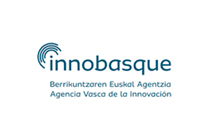 Past events: Nadja Tschentscher. Combined EEG/MEG reveals the neural dynamics of large-scale networks during abstract problem solving
Past events: Nadja Tschentscher. Combined EEG/MEG reveals the neural dynamics of large-scale networks during abstract problem solving
Nadja Tschentscher. Combined EEG/MEG reveals the neural dynamics of large-scale networks during abstract problem solving
When: 12 PM, noon.
Abstract problem solving requires the fast coordination of large-scale brain networks. Metabolic neuroimaging has identified several putative brain networks, but determining essential network properties requires the measurement of their spatio-temporal dynamics. We analyzed large-scale memory and executive control networks underlying abstract problem solving by contrasting participants’ self-reported “memory retrieval” (e.g. “3+4”) and “multi-step procedural” strategies (e.g. “23+17=23+10+7”) in arithmetic task paradigms. In fMRI, stronger BOLD signal for procedural strategies was observed in a set of frontal and parietal regions, commonly described as one executive control network. However, our combined EEG/MEG source analyses suggest that even brain areas previously perceived as one network reveal independent activation dynamics. Evoked analyses provided evidence for the particular role of right prefrontal cortex in early processes of strategy selection before parietal cortex. A follow-up EEG/MEG study confirmed that this effect is predicted by demands on early sub-sequencing of multi-step solutions, as opposed to general complexity during task encoding. In EEG/MEG functional source connectivity analyses, rule and arithmetic fact retrieval – as well as task execution demands – were reflected in frontal-temporal networks, previously associated with memory processes, and frontal-parietal executive control networks, respectively. We here show that mental arithmetic is a powerful paradigm to study brain networks involved in general abstract problem solving across different phases of the solution process.









